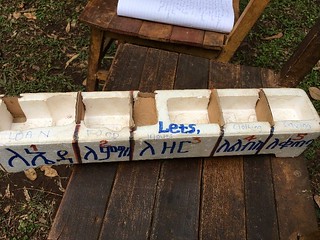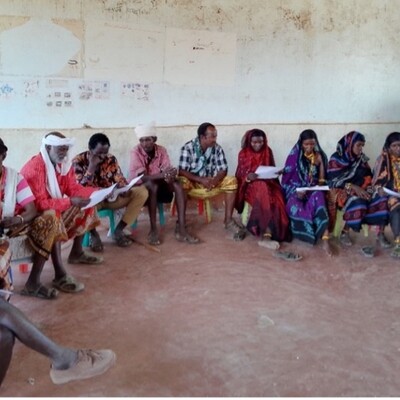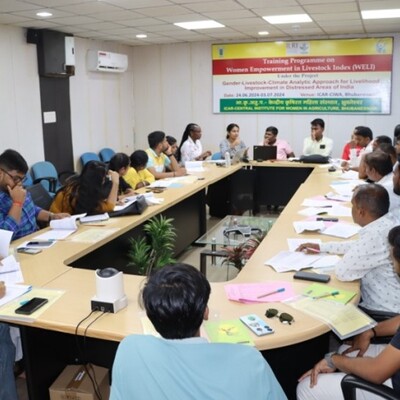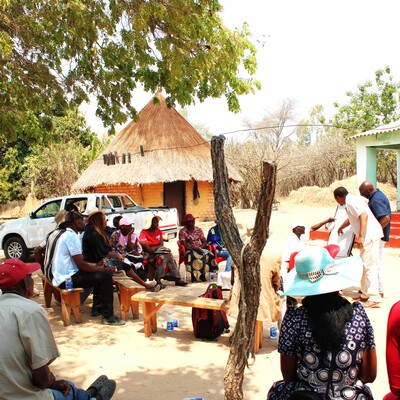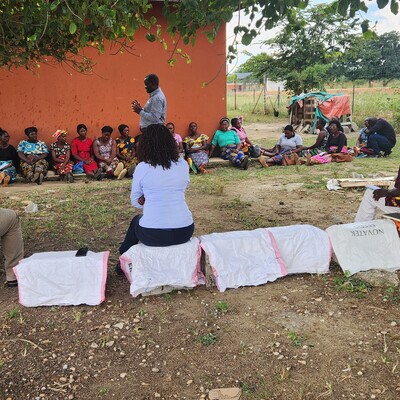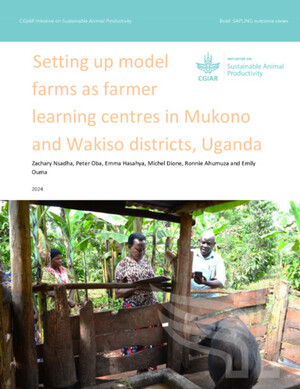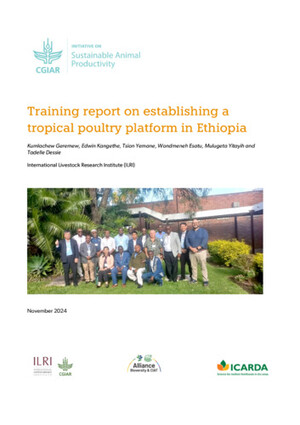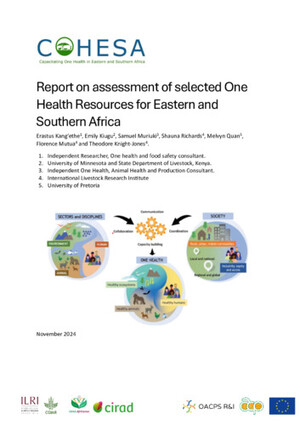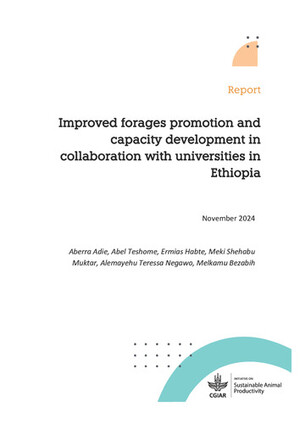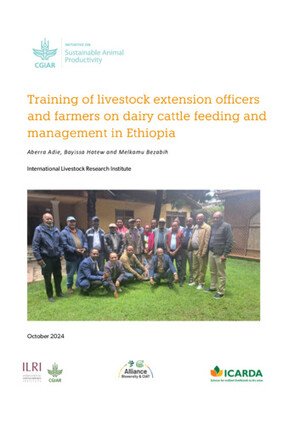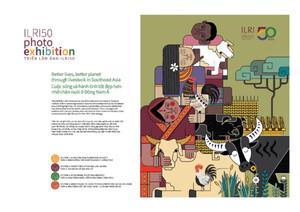
Teaching aid helps Ethiopian farmers allocate more money for nutritious animal-source foods
The Agriculture to Nutrition (ATONU) project provides technical assistance for integrating tailored nutrition interventions into planned and ongoing agricultural investments in Africa. One of the project’s focus countries is Ethiopia. ATONU focuses on interventions that address the wide-ranging social, cultural and environmental challenges found in African agriculture. One of these interventions is a weekly education session delivered by field assistants (FA) to Ethiopian household members in project areas.
During a supervisory field visit, the ATONU team met with Zemen Zeleke, a field assistant working in the Southern Nations and Nationalities and Peoples Region (SNNPR) of Ethiopia, while he was conducting an ATONU weekly session in a village called Gigo Hamba. The session, which was attended by more than 50 people, was on the subject of joint financial planning and budgeting particularly aimed at empowering women in order to enhance their participation decision-making in households.
In the session, Zemen gave practical illustrations of joint financial planning and budgeting using examples from the day-to-day life of farmers and experiences in the village, making the session relevant to the participants. Based on their experiences, farmers described five key areas which require proper use of income and budgeting. These included buying food, clothes and farm inputs, loan repayment, festivals, and savings.
Zemen also used several participatory approaches were used in the session including discussions, and question-and-answer sessions, to enhance learning, sharing and understanding of concepts presented. But what set this particular session apart from others was his use of a teaching aid to explain budgeting in the five areas identified by the farmers. A large box with five labeled compartments that read ‘for loan’, ‘for food’, ‘for seeds’, ‘for clothing’ and ‘for saving’ (see picture) was used to in training.
After displaying the box, Zemen handed out coins to the farmers, who went into groups and prioritized and allocated the coins to the compartments according to their perceived importance. Food emerged as the most important item on the budget list, followed by farm inputs and thirdly, loans and savings. Clothing/holidays was the least prioritized. After the exercise, the discussion narrowed down to budgeting for food and farmers discussed which food cost the most. They said most of their income was used to buy animal-sourced foods such as eggs and milk because most plant-based foods were grown in their farms.
Zemen’s teaching methodology has attracted many farmers his education sessions. The innovative budgeting framework he created is being scaled up to other project villages and beyond into Tanzania. The ATONU team is also working on integrating and scaling up this framework to other projects that are working on behavior change communication (BCC) to improve nutrition in smallholder farming households.





